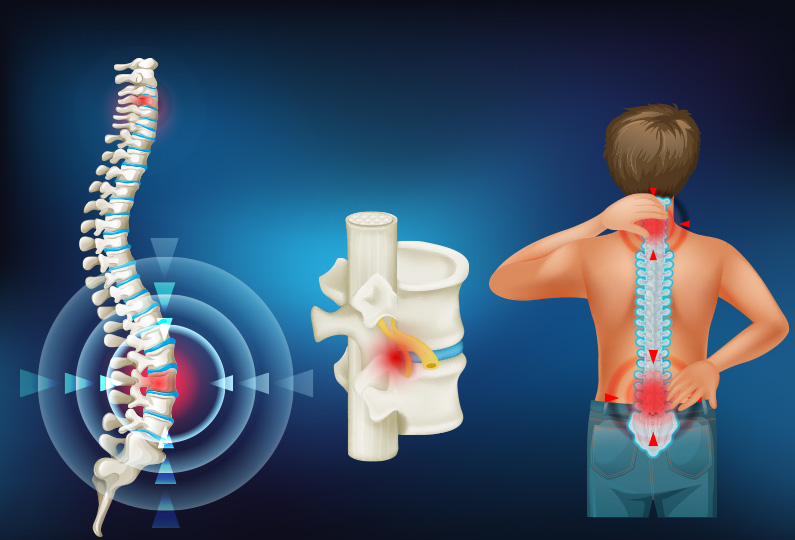Fibromyalgia
Fibromyalgia
Fibromyalgia is a long-term (chronic) condition associated with pain in different parts of your body. You may also have difficulty sleeping, feel tired and have problems with your memory.
There is no cure for fibromyalgia, but there are many ways to manage the condition and relieve your symptoms.
Causes of fibromyalgia
It is not entirely clear why some people develop fibromyalgia, but there are some factors that seem to increase your risk.
Fibromyalgia runs in families. If one of your relatives has fibromyalgia, you are more likely to develop fibromyalgia at some time in your life. It is also linked to other chronic pain disorders such as irritable bowel syndrome (IBS) and temporomandibular joint disorder. Therefore, if you or someone in your family has one of these conditions, you may be more likely to develop fibromyalgia.
It is thought that certain things can trigger fibromyalgia symptoms. These can include traumatic events such as a car accident, having major surgery or an infection.
Sleep problems can also play a role in triggering fibromyalgia symptoms. Lack of sleep can make your symptoms worse by affecting the nerve pathways that control pain.
Fibromyalgia symptoms
- The main symptoms of fibromyalgia include
- widespread pain throughout your body, usually affecting your neck and shoulders or lower back
- hypersensitivity to touch, light, sounds or smells - even a light touch can seem painful
- feeling stiff, especially when you wake up - it can get worse when you move
- feeling very tired and lacking energy
- sleeping poorly and waking up unrefreshed
- problems with your memory or clear thinking (sometimes called 'fibrous fog')
- changes in your mood
- getting pins and needles or tingling sensations
- headache
These symptoms may worsen in cold weather or if you are feeling stressed. If you get these symptoms regularly, contact your doctor for advice.
Other health conditions can be associated with fibromyalgia. These include:
- Irritable bowel syndrome (IBS)
- Anxiety and depression
- An irritable bladder that can make you want to pee a lot
- Restless leg syndrome
- Premenstrual syndrome (PMS)
- Raynaud's phenomenon
About one in three people diagnosed with fibromyalgia have symptoms of depression. If you find it difficult to manage pain or lack of sleep, this can make you feel depressed. It is also possible that fibromyalgia and depression occur in the same way, through chemical changes in your brain.
Diagnosis of fibromyalgia
They will ask you questions about your symptoms, your general health and your medical and family history. They may go through different parts of your body to check exactly where your pain is. Your GP may also ask how severe other symptoms are, such as fatigue, sleep problems and memory problems. The more parts of the body that are affected and the more severe your symptoms are, the more likely you are to have fibromyalgia.
Your doctor will also examine you to check for signs of other conditions that may be causing your pain.
There is no specific fibromyalgia test. However, your doctor may do some blood tests to rule out other conditions with symptoms similar to fibromyalgia.
- A pain specialist, usually in a pain clinic.
- A musculoskeletal (MSK) specialist (health professionals who specialize in treating conditions that affect muscles and joints), such as a physiotherapist or MSK doctor.
- A rheumatologist (a doctor who specializes in identifying and treating conditions that affect muscles and joints).
- A psychologist (a doctor who specializes in mental health and psychological treatments).
Fibromyalgia treatment
There is no cure for fibromyalgia, but there are treatments and things you can do that can help relieve your symptoms. Usually several health professionals are involved in your care and your treatment involves a combination of different therapies. As you understand your condition better, you can work with your doctors and therapists to find the best treatments for you.
Fibromyalgia Exercise
Staying active with regular exercise can be really beneficial for people with fibromyalgia. It can help relieve pain and stiffness, increase your strength and improve your ease of movement. It can also improve general well-being.
Aim to do some exercise every day, including the following types.
- Aerobic exercise - activity that makes you breathe harder and faster.
- Resistance (strengthening) exercise - to strengthen muscles and protect joints.
- Stretching exercises - to improve flexibility.
Your doctor or physiotherapist can advise you on fibromyalgia exercises and how to exercise safely and effectively. They can recommend an exercise program for you. It is usually best to start slowly, gradually increasing the time you spend being active each day. Walking or water-based exercises are good forms of exercise to start with. Be patient - at first you may notice your pain and fatigue getting worse, but they should improve.
Other activities that combine exercise and relaxation, such as yoga and t'ai chi, can also help some symptoms of fibromyalgia.
Talking therapies
Your doctor may recommend a talking therapy called cognitive behavioral therapy (CBT). It helps you challenge negative thoughts, feelings and behaviors and how you manage pain. You can see a CBT therapist or access treatment online.
Fibromyalgia Complementary therapies
Your doctor may suggest that you try a course of acupuncture to see if this helps your symptoms. Acupuncture involves the use of thin needles inserted into specific areas of your body to relieve pain. It should be given by a health professional with appropriate training in the therapy.
There is not enough evidence to support the use of other treatments for fibromyalgia, such as transcutaneous electrical nerve stimulation (TENS) machines or ultrasound.
Fibromyalgia Medicines
Doctors will often suggest focusing on other treatments before recommending medication for fibromyalgia. This seems better for managing fibromyalgia symptoms in the long term and avoiding dependence on medications. But if you have tried other options to manage your symptoms, your doctor may recommend a course of antidepressants. Antidepressants are often used to help with sleep problems and pain, even if you don't have depression.
Other types of medication, including non-steroidal anti-inflammatory drugs (NSAIDs), paracetamol, opioids and epilepsy drugs, have previously been used to treat fibromyalgia. If you are already taking one of these medicines for fibromyalgia, your doctor can talk to you about whether you should continue with these medicines.
Living with fibromyalgia
It can be difficult to stay positive when you are in pain and feeling tired. Having long-term pain can make you feel isolated and lower your mood. Staying connected with friends and family can help. You might also consider joining a support group. Ask your GP practice if they know of a local place for you or check the organizations listed below under 'Other helpful websites'.
If you find work challenging because of your pain or fatigue, talk to your employer to discuss your options. Working can be a good thing for many reasons, such as maintaining your physical abilities, self-esteem, confidence and social relationships. It is worth exploring whether you can make some changes that will allow you to continue working. It may be possible to make some adaptations to your workplace. Or you could work flexible hours or take additional rest breaks to cope with fatigue. An occupational health counselor or therapist can help you with this.
If you are not working, it is a good idea to add other things to your life, such as taking up a new hobby. This can distract you from the pain of your condition and help you stay active and expand your social life.








